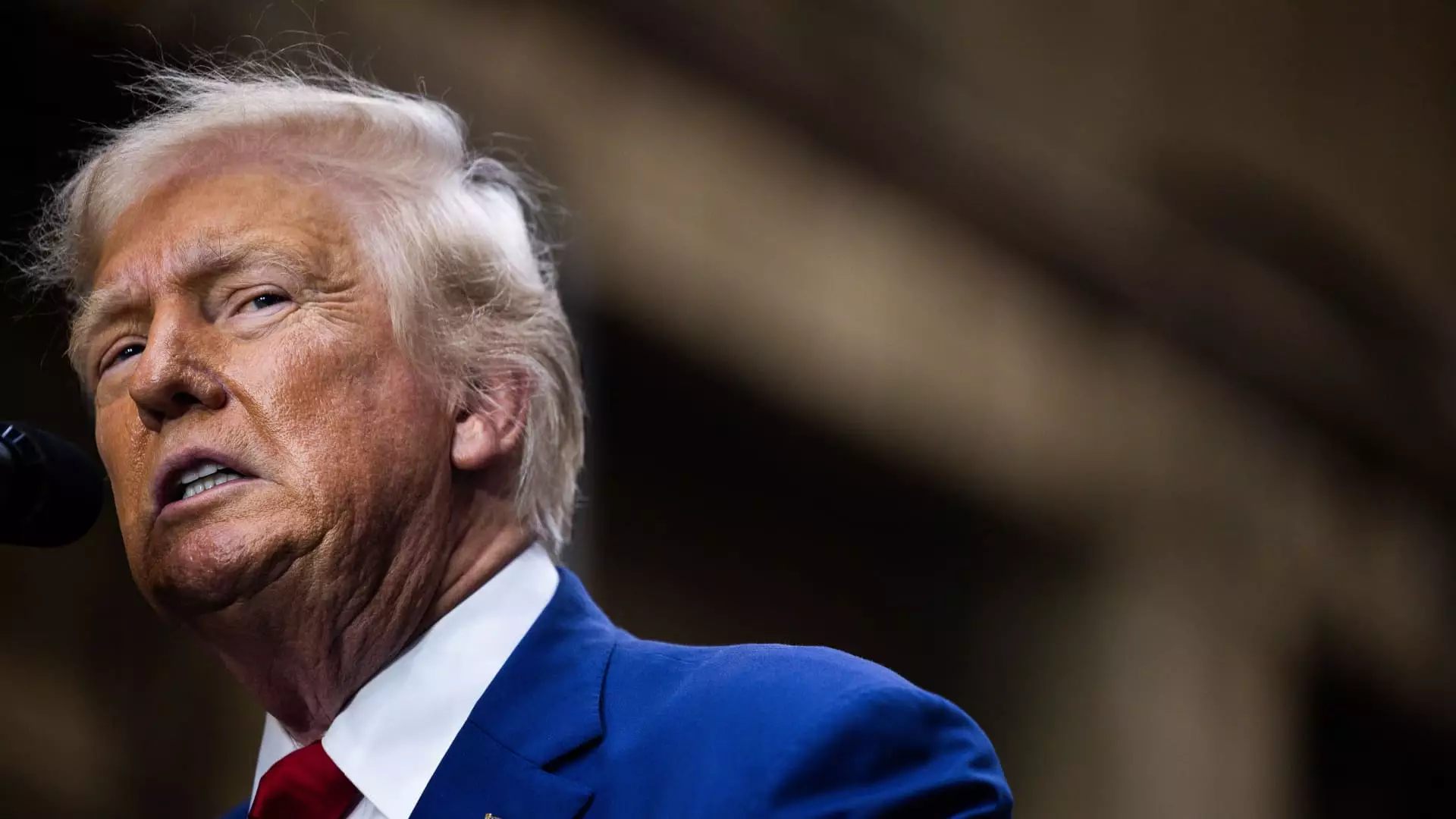The recent developments surrounding Jonathan Braun illustrate the intricate overlap between criminal justice, politics, and public perception. A federal judge in New York has mandated an investigation into the circumstances following Braun’s recent arrest, which brings to light concerns not only about criminal behavior but also about the broader implications for the political landscape as the 2024 presidential elections approach. Braun, a convicted drug dealer with a checkered history, had his drug-related sentence commuted by former President Donald Trump in early 2021, raising questions about the effectiveness and potential consequences of presidential clemency.
Braun’s latest legal troubles stem from allegations of domestic violence, including charges of assaulting both his wife and father-in-law. The police reports indicate that during a domestic disturbance, he allegedly struck his 75-year-old father-in-law in an attempt to exert control over his wife, showcasing not only a pattern of violent behavior but also the serious implications of such actions when viewed through the lens of family dynamics and social stability. These incidents were reportedly not isolated, as prior allegations of assault on his wife had emerged, highlighting a disturbing trend in Braun’s behavior post-release from prison.
Additionally, Braun faces frivolous legal troubles related to unpaid tolls while driving high-end luxury vehicles, which adds to a growing narrative of entitlement and disregard for the law. Such actions raise pertinent questions about his rehabilitation since being released from a lengthy prison sentence.
Braun was one of many individuals whose sentences were commuted by Trump, a move often perceived as controversial given the backgrounds of those involved. Upon his release, it was anticipated that Braun would use his second chance to contribute positively to society. Instead, his subsequent arrests place a spotlight on the efficacy of such clemency as a rehabilitative tool. Critics may argue that allowing individuals with a criminal history such leniency can lead to further criminal behavior, thereby undermining public safety.
This recent arrest not only reignites discussions regarding criminal justice reform but also serves as a potential political weapon in the ongoing electoral discourse. Trump’s team has positioned him as tough on crime, a strategic stance that could be jeopardized by instances like Braun’s repeated offenses.
With the 2024 presidential election in sight, Braun’s case has attracted attention because it intersects with key campaign issues, particularly those concerning crime and public safety. Vice President Kamala Harris, having a background as a prosecutor, may find herself entangled in the narrative surrounding Braun due to Trump’s intent to leverage Braun’s circumstances against her. The complexities of this situation demonstrate how individual legal cases can escalate to national political significance, affecting candidates’ campaigns and public perceptions about crime and justice.
A spokesperson for Trump claimed he believes criminals should serve time, which contrasts Braun’s initial release. This apparent contradiction may lead voters to question the integrity of Trump’s clemency decisions and harness their anxieties regarding safety and justice. In an era where public sentiment is easily swayed by news cycles, Braun’s case could very well influence the broader narrative as candidates vie for voter support.
The case of Jonathan Braun serves as a notable example of the intersecting realms of law, politics, and societal expectations. As authorities investigate the implications of Braun’s latest arrest, it brings to the forefront the idea of accountability for individuals granted second chances under clemency programs. The development raises critical questions about the effectiveness of rehabilitative efforts for those with substantial criminal histories and compels the judicial system to consider the broader implications of their actions—especially as we approach a pivotal election.
As political dynamics continue to evolve, the ramifications of Braun’s situation may serve as a cautionary tale for future clemency considerations and redefine how we understand the concepts of rehabilitation and accountability in a politically charged environment. The outcomes will likely ripple through the upcoming electoral dialogues, affecting not only the candidates’ campaigns but also public trust in the legal system and its processes.


Leave a Reply